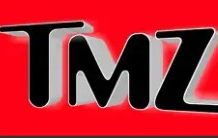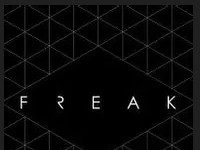:max_bytes(150000):strip_icc():focal(660x379:662x381)/the-luckiest-book-cover-kelly-cervantes-portrait-110325-ba23203c87bf482894d05da6779033e9.jpg)
NEED TO KNOW
- In her new memoir, The Luckiest, author and CURE Epilepsy advocate Kelly Cervantes shares “the pain of unrealized dreams, navigating her husband Miguel’s Broadway spotlight as the title role in Hamilton), fighting for their daughter Adelaide’s life and adopting their daughter Anessa, and rebuilding her life and marriage,” according to an official synopsis
- Below, in an exclusive excerpt from a digital bonus chapter, she reveals what her own health challenges taught her
- The Luckiest is on sale now from BenBella Books
After losing Elvis I had thought I was free and clear. That I had survived my life’s most traumatic moment and now I could rest easy. But then the asteroids kept coming, one after the other, with no regard for the time or space between them. Adelaide had taught me how unfairly asteroids are rationed, and I spent years on lookout, trying to prepare for the next impact. But life has a way of lulling you into complacency, and over time my eyes drifted less frequently to the sky.
I once came across a meme that read something like, “You know shit’s bad when people start telling you how strong you are.” Surviving several astrological storms had me on the receiving end of this sentiment more times than my husband has sung “My Shot.” I’d always found it to be an odd compliment, given that I hadn’t elected the trials I’d faced. But also, why yes, thank you, I am strong. After all, I had chosen to face those trials (eventually), even if I didn’t want to.
Though I would rather not possess it, I am proud of this strength. An interesting side effect, I suppose, taking pride in something you’ve achieved as a result of events you would rather not have experienced. But I survived them and with that comes an understanding that even amidst all the asteroids, life continues, and as long as we are alive there is always a way forward. It’s not that I feel invincible, but that I now trust that, no matter how badly I get knocked down, just like Chum buwumba said in their 1997 hit “Tubthumping,” “I get back up again.” (You’re welcome, elder millennials.)
Barry Brecheisen/Getty
Maybe that was why I wasn’t afraid when my OBGYN, the same one who first told me something wasn’t quite right with Elvis’s ultra sound 12 years earlier, confirmed what I had already read in my online medical chart: I had breast cancer. A few weeks earlier, a suspicious lump had been found during my annual mammogram and ultrasound, and the radiologist recommended a biopsy. I knew better than to assume the biopsy would come back negative — that just because I was still navigating cratered remains didn’t mean there weren’t still meteoric rocks in my orbit.
Of course, by the time I was once again sitting across from my OBGYN’s large wooden desk, I had already spent hours on a Google dumpster dive learning everything I could about the little bit of cancer in my boob, as I would begin to refer to it. If it hadn’t been cancer I was researching, it would have almost felt good to dust off this Adelaide-honed skill, slipping this layer of myself on again like a well-loved sweater, stretched and faded in all the right places. I couldn’t control what was happening inside my body, but I could control my knowledge surrounding it. Thankfully, what I read indicated this type of cancer was unlikely to be life-threatening. I would get back up again just like I always had before.
“If you’re going to get cancer, this is the kind you want to get,” my surgeon said, confirming my online medical research skills hadn’t waned in the years since Adelaide had died. She recommended a lumpectomy followed by six weeks of daily radiation.
“If there is any chance of recurrence, should we just do a mastectomy?” I asked. “I mean, I’m not attached to my breasts. Well, I guess I am physically, but not emotionally.”
She laughed, which I took as a sign that I was winning at cancer. “I’ll perform a mastectomy if that’s what you want, but I really don’t think it’s necessary.”
I took her confident recommendation and chose the lumpectomy. I just wanted this cancer chapter to be over as quickly as possible. I had already put my calendar on hold since I couldn’t schedule any events with surgery and radiation on the horizon. Normal Broken’s success had led to a year full of paid speaking engagements and I was eager to get back out there and book more events. It felt like just as this next stage of my career was taking shape, I was once again being pulled off course. Though hopefully it wouldn’t be a full stop this time, and instead more of a temporary pause. Six months and then I’d be back on track.
Related Stories
Six months was nothing compared to the career stoppages I’d experienced in the past. It was also so much less than many other women with a breast cancer diagnosis experience. I began to feel guilt for getting off easy. I had lost a dear friend three years earlier to metastatic breast cancer after she had gone through rounds and rounds of experimental treatments. She was only 37 when she died, leaving behind her husband and 2-year-old daughter. That was cancer. This was a little bit of removable cancer in my boob. I didn’t have cancer, my boob did. It was inconvenient, not life-threatening.
I also felt I was at a distinct advantage because of my experience with Adelaide. This was certainly not my first medical rodeo. Hav ing my name on top of the intake forms, however, was new. Caregiver, advocate, mama bear fighting with claws out — yes. But being the patient? Well, that required a level of patience I was unfamiliar with, and a degree of grace I’m not sure I had ever granted myself before.
Never miss a story — sign up for PEOPLE’s free daily newsletter to stay up-to-date on the best of what PEOPLE has to offer, from celebrity news to compelling human interest stories.
I expected that I would be in bed for a couple of days following the lumpectomy, but then push through the pain and return to regular life shortly after — minus any heavy lifting, of course, because who wouldn’t take advantage of a doctor’s orders to not cook or clean? So the physical exhaustion afterwards took me by surprise.
BenBella Books
I was familiar with the way anxiety and grief could compromise what I was physically capable of, but never before had I felt compromised because of my body. Even when I rested, I struggled to get comfortable as my binding bra rubbed against the raw sutures. Unfortunately, the physical energy my body was diverting toward healing was not impacting my mental energy. In fact, my brain took this opportunity to run through every what if, should have or could have as if it was training for a mental marathon. Is this what Adelaide experienced following her many procedures and hospital stays? What had I done to her? How many times did I push her too hard while she should have been recovering?
Over and over again, I would remind myself that I had made the best decisions for her I could with the information I had at the time. Still, I was sorry. Sorry for not knowing what it felt like to recover and how long this sort of healing could take.
A week after my lumpectomy, I stood in front of my mother in tears. “Why am I still so tired? Why can’t I do everything I want to, that I need to? How did I agree to put Adelaide through this so many times?” I knew I’d done my best, but how could I reconcile knowing, now, that my best may not have been what was best for her? Instead of the strength people said they saw in me, I felt weaker than ever. The procedure I’d had was simple compared to the alternatives. I wasn’t going to require chemo. I was lucky. If I was as strong as everyone said, why was I struggling? Perhaps I had been fooling everyone, including myself, all along.
Excerpted from a digital bonus chapter from The Luckiest by Kelly Cervantes. copyright © 2025 by Kelly Cervantes. Used by permission of BenBella Books. All rights reserved. No part of this excerpt may be reproduced or reprinted without permission in writing from the publisher.
The Luckiest is available now, wherever books are sold.





